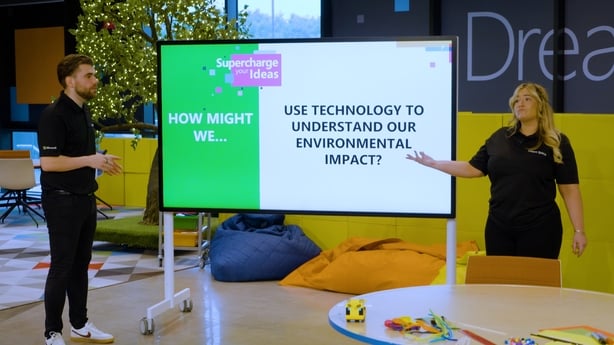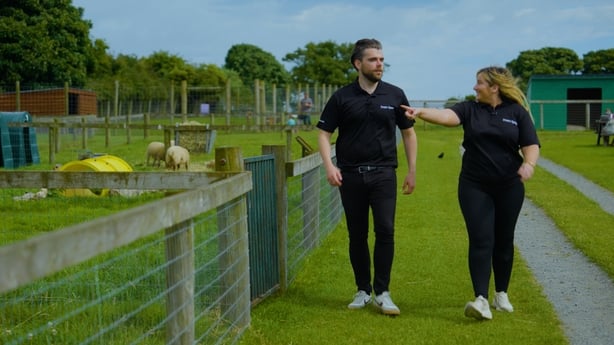Get ready to roll up your sleeves and dive into the green side of STEM with Episode 3 of Dream Space TV's sustainability series Code Green on RTÉ Learn!
Join Michael and Corey to learn all about the magic of plants and how we can play a role in climate action. The team also hit the road to visit Glenroe Farm, where we see first-hand how farmers in Ireland are using sustainable practices to care for the land. It's a fantastic way to show students how the concepts they're learning in class connect to real-life actions in their communities.
Watch the show above and download the Full Educator guide here!

Through this fun and hands-on lesson, students will learn to:
- Understand what climate change is and how it affects our world.
- Explore how technology can help us take part in climate action.
- Identify the impact of environmental conditions on plant growth.
- Program a micro:bit to become a soil moisture sensor and track plant health.

This episode goes beyond coding, as we get our hands dirty with a fresh take on a classic classroom science experiment by building and coding a plant moisture monitoring system inspired by the innovative FarmBeats for Students initiative.
Through this hands-on episode, students get to build something real that helps them understand plant health while becoming mini-environmental scientists in the process!
Watch the full series and download all resources from Code Green on RTÉ Learn here!
Curriculum Links
Primary Mathematics Curriculum
Strand: Measures
Strand Unit: Measuring
Learning Outcomes:
- Compare, estimate and measure capacity and volume using appropriate instruments and record and communicate appropriately.
- Find, interpret and deduce measures experimentally with increasing precision.
Science, Technology and Engineering Education
Strand: Environment and Sustainable Living
Strand Unit: Geography
Learning Outcomes:
- Understand and describe how a digital system operates, for example a computer or a tablet; build an awareness of how hardware and software enable a digital device to work effectively; explore and use a range of software and hardware to assist their own learning.
- Explore and use their understanding of algorithms or programs to create a representation (computer model) of something from the real-world; test and adjust (simulate) these representations to make them more effective
Social and Environmental Education
Strand: Environment and Sustainable Living
Strand Unit: Geography
Learning Outcome:
- Analyse weather patterns and climate, distinguishing between short-term weather events and long-term climate trends and identify factors that influence climate change and their impact on the human and natural environments and daily life.

